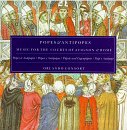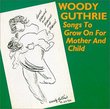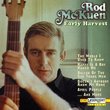| All Artists: Jean (Jean de Noyons) Tapissier, Antonius da Civitate Austrie, Nicola (Magister Zachar Zacharie, Johannes Brassart, Guillaume Dufay, Orlando Consort Title: Popes & Antipopes Members Wishing: 0 Total Copies: 0 Label: Metronome Release Date: 9/19/1995 Genres: Pop, Classical Styles: Vocal Pop, Opera & Classical Vocal, Chamber Music, Historical Periods, Classical (c.1770-1830), Early Music Number of Discs: 1 SwapaCD Credits: 1 UPC: 789368233328 |
Search - Jean (Jean de Noyons) Tapissier, Antonius da Civitate Austrie, Nicola (Magister Zachar Zacharie :: Popes & Antipopes
 | Jean (Jean de Noyons) Tapissier, Antonius da Civitate Austrie, Nicola (Magister Zachar Zacharie Popes & Antipopes Genres: Pop, Classical
|
Larger Image |
CD DetailsSimilarly Requested CDs |
CD ReviewsClarifications! Giordano Bruno | Wherever I am, I am. | 04/23/2007 (5 out of 5 stars) "First, this IS music for everyone, contrary to the previous reviewer's pessimism, because it's wonderful music spectacularly well sung. This is one of the very few masterful performances of the diffilcult music of the Codex Chantilly, but don't worry about the musicology. Just buy the CD, put it on a good sound system and listen. Second, there are no viols nor violas involved, despite the listing of selections above. Amazon has messed up a classical listing again by confounding the Orlando Consort of singers with the Orlando Viol Consort." A Five-Voice Marathon Billyjack D'Urberville | USA | 09/29/2005 (5 out of 5 stars) "This is a record of music very unusual to the modern ear, from the time of the great Western schism of the Catholic Church in the 14th and early 15th centuries. Orlando Consort, here four male voices (two tenors, a countertenor, a bass) joined occasionally by a female (alto) run a 16 song marathon without instrumental accompaniment that sounds like a single song. One voice is ahead and then another, with the rest providing counter-point behind, rising and falling steadily within a set course -- nothing unusually high or low, nothing jarring, but always lovely and lilting, neither sweet nor rough -- five joggers maintaining a brisk but overall even and unitary pace.
Listening to a music of such subtlety obviously requires great patience, the aesthetic is so radically different from what we are used to, yet the effort is quite worth it. This is the atmosphere of the papal courts of Avignon and Rome, the same highly refined atmosphere that produced Petrarch's 365 Canzones, one for each day of the year, most in a few set forms with only subtle variations, all essentially on the same theme. What is prized is regularity, evenness, modulation -- offered as high praise to some proper object. For Petrarch, it was his passion for Laura. For these courtly song writers, it was a new pope, a papal occasion, a papal relative, or -- in three remarkable pieces here --a plea for an end to the schism. Full Latin texts with English prose translations are provided for each piece, along with a good historical introduction. This is not music for everyone. Nor even for those who like it will it be for every day. It is also neither as universally appealing as Gregorian chant, nor anywhere near the emotional depth that may be found in the analogously apparent monotony of Orthodox liturgical music. What is here, however, is an astonishing dimension added to one's understanding of what was indeed an unusual era, quite lovingly and expertly brought forward by this little vocal group. Besides the rupture which damaged Christendom, Avignon's big contribution to the future of the papacy (and Europe) was the refinement of beaurocracy. In this sense, one sees the radically muted tonality of this music fitting like a glove, leaving an impression of an aesthetic not unlike those seemingly endless dynasties of Egypt or the Orient. In our own time the affinity would be to Phillip Glass or Brian Eno -- outside the apparent warp and woof of the age at street level, but quite at home in the elevators of the corporate skyscrapers that keep the capital and dollars flowing that underlie the whole gameboard." |

 Track Listings (16) - Disc #1
Track Listings (16) - Disc #1

![Seussical [2000 Original Broadway Cast]](https://nationalbookswap.com/cd//m/02/4802/514802.jpg)